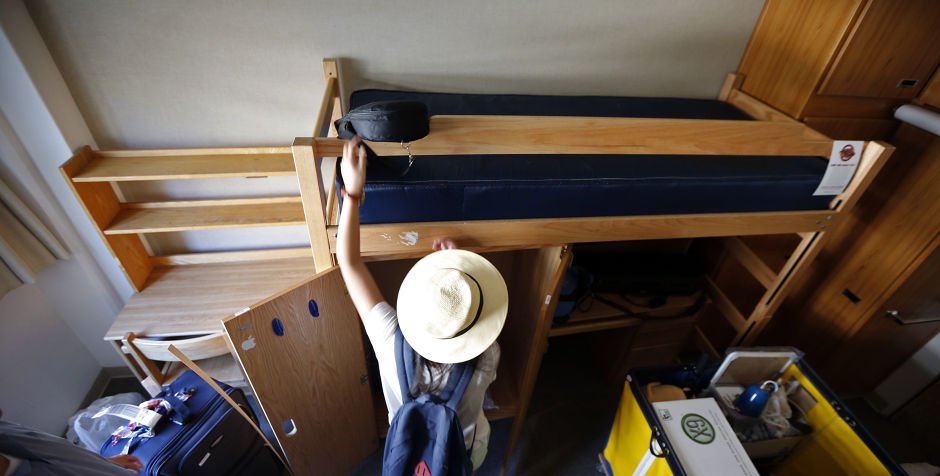Factual Distortion and the First Amendment: the New Anti-Israel Weapons of Choice on Campus
As the fall semester winds down on college campuses, anti-Israel activity is once again on the upswing.
Included in the surge are accusations by anti-Israel student organizations that their own rights are being violated. Omitting and twisting facts seems to be a specialty of these groups, who are using their distorted versions of reality in an attempt to silence those who support—or simply choose to refrain from denouncing—Israel. Based on these insidious efforts, one student government leader finds himself amid calls for his resignation, while another has been placed under investigation for potential ethics violations.
Last week, the ACLJ, in collaboration with several other organizations that are zealous in their defense of free speech on our nation’s campuses, issued letters to the administrations of two major universities in support of the constitutional right of students to engage in pro-Israel speech and the right of a student government body, in an effort to remain neutral, to refrain from speaking about Israel-Palestine politics.
On Tuesday, the ACLJ sent a letter to UCLA Chancellor Gene Block defending the right of the UCLA Graduate Student Association (GSA) to implement a policy whereby the body itself would refrain from speaking—including through the use of its own funds—on the issue of Israel-Palestine politics. Our letter responded to a letter from the ACLU, the Center for Constitutional Rights, and Palestine Legal, on behalf of the UCLA chapter of Students for Justice in Palestine (SJP), in which the legal groups argued that such a policy violates the right to freedom of speech of student organizations.
As our letter explained, however, the ACLU letter omitted crucial background facts from relevant communications, in which the GSA President clearly explained that this policy applied to the GSA’s own speech (including the expenditure of its funds in the form of sponsorship). In such circumstances, we emphasized, the speech covered by the proposed policy (that of the GSA itself) is government speech, and when the government speaks, including through the use of its own money, it may choose what to say and, critically, what not to say.
Importantly, the funding source that is made available generally for the events of student organizations carries no such restriction by the GSA, instead leaving students free to speak on this issue, supported by those separate funds, from any viewpoint they choose. In other words, the anti-Israel student group has insisted that the GSA must subsidize its views outside the normal student organization funding process. The GSA’s policy merely reflects its choice not to expend extra resources reserved for its own uses to sponsor special events on either side of this issue.
In short, a decision by the GSA to refrain from taking sides in what has become an increasingly divisive issue among students on campus is eminently reasonable and constitutional.
Just three days later, the ACLJ again joined a larger group of organizations in writing to University of Michigan President Mark Schlissel to set the record straight regarding the free speech rights of students on campus. This time, Jesse Arm, a Central Student Government (CSG) representative, was called in by the CSG ethics committee to answer for his expression of pro-Israel sentiments. Specifically, Mr. Arm engaged members of the student organization Students Allied for Freedom and Equality (SAFE) in a dialog in which he explained his feelings of disgust and offense upon witnessing their public demonstration, which included two massive walls simulating the security fence Israel has constructed to protect its citizens from terrorist attacks, along with the following message written across a map of Israel: “TO EXIST IS TO RESIST.”
While video footage unequivocally demonstrated no inappropriate behavior by Mr. Arm, members of SAFE persuaded the CSG to initiate an ethics investigation against him by claiming that Mr. Arm’s conduct was aggressive and hateful. The letter to President Schlissel explained, in no uncertain terms, that such baseless allegations—as well as the resulting CSG ethics investigation—were in direct violation of Mr. Arm’s constitutional right to the freedom of speech. We further emphasized that any penalty imposed on Mr. Arm by the CSG would serve only to compound the constitutional violation and urged immediate action by the University, including termination of the CSG ethics investigation.
Perhaps the most offensive aspect of these situations is the fact that they are merely representative of a truly ironic epidemic emerging on our nation’s campuses: in the place uniquely dubbed by the United States Supreme Court as “the marketplace of ideas,” in which we should be most zealously protective of free speech rights, especially on controversial issues, anti-Israel forces are turning the shield of the First Amendment on its head, using it instead as a sword in an attempt to silence the speech of those who would dare to challenge (or merely choose not to embrace and underwrite) their views.
Unnecessarily—and based on erroneous and incomplete factual information—these groups are attempting to create constitutional crises where none exist. It is imperative that administrators recognize—and refuse to be taken in by—these tactics. As emphasized in the University of Michigan letter, the mantra of “free speech for me but not for thee” is a double standard that is antithetical to the First Amendment and must not be sanctioned on our campuses.
We will continue to defend the First Amendment from these types of anti-Israel assaults on college campuses across America.
